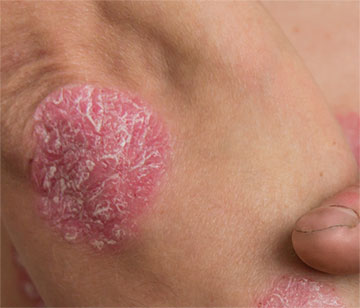The first psoriasis patient has been dosed in a Phase 3 clinical study of Innovent’s picankibart (recombinant anti-interleukin 23p19 subunit (IL-23p19) antibody).
This study is the first randomized, double-blind, controlled Phase 3 clinical study evaluating biologics switching in psoriasis patients with prior inadequate response to anti-IL-17 antibody.
Evaluate Efficacy and Safety
It is a multi-center, randomized, double-blind, active-controlled Phase 3 clinical study to evaluate the efficacy and safety of switching to picankibart in plaque psoriasis patients with inadequate response to prior anti-IL-17 monoclonal antibody treatment (Static Physician’s Global Assessment [sPGA] score of ≥ 2 and body surface area [BSA] of ≥3%.)
This study plans to enroll approximately 310 participants, who will be randomized in a 1:1 ratio to the picankibart treatment group or the continued IL-17 monoclonal antibody treatment group. The primary endpoint is the proportion of participants achieving a sPGA score of clear (0) or almost clear (1) at Week 16.
The results of a Phase 2 study showed that switching from other biologics (primarily IL-17 monoclonal antibodies) to picankibart led to a rapid clinical response. The observed efficacy in skin lesion clearance and significant improvements on the quality of life suggest picankibart may possess a best-in-class profile among agents with the same target.
– Nearly half (48.2%, 40/83) of the participants with inadequate response to prior biologics treatment reached the primary endpoint, i.e., sPGA 0 or 1 and BSA < 3%, and the response rate remained stable (54.2%, 45/83) through week 44 with continued picankibart maintenance treatment dosing every 12 weeks.
– The majority (64.6%, 42/65) of the participants with baseline sPGA ≥2 and BSA ≥3% achieved sPGA of 0 or 1, and 16.9% (11/65) of the participants achieved complete skin lesion clearance, i.e., sPGA of 0. The DLQI of the participants was also improved.
Treatment Failure Remains a Challenge
“At present, biological agents have emerged as cornerstone systemic therapies for psoriasis, particularly IL-17 monoclonal antibodies due to their efficacy in patients with moderate-to-severe psoriasis. Nonetheless, treatment failure remains a significant clinical challenge,” says study author Professor Furen Zhang, of the Dermatology Hospital Affiliated to Shandong First Medical University, in a news release.
“A real-world study showed that 28.5% of patients discontinued therapy due to primary failure (failing to meet the minimum efficacy criteria after 12 weeks of treatment), while 24.3% of patients experience secondary failure (failing to maintain a satisfactory quality of life when the efficacy of an effective biologic was attenuated).”
For patients experiencing treatment failure, there is an urgent medical need for optimized treatment strategy, Zhang says. “This trial will generate robust clinical evidence supporting biologic switching strategies in psoriasis treatment while potentially establishing a valuable new treatment option for the majority of patients with psoriasis.”
Study author Professor Jun Gu of Suzhou Municipal Hospital, adds, “Although the IL-17 monoclonal antibody has shown significant efficacy for the treatment of psoriasis, there are still patients who will discontinue treatment due to poor efficacy or safety issues.”
The new Phase 3 study “aims to transform treatment failures into new starting points for optimized treatment pathways, providing scientific evidence for clinical decision-making, while also offering new hope of maintaining quality of life for patients who have experienced treatment setbacks.”


